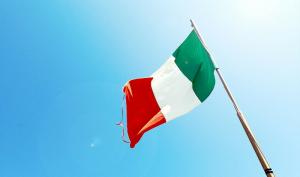Since when does Nationalism exist?
Currently, we have a very concrete idea of what nationalism is. We could define it as the feeling of belonging to a community, identified as a nation, in which the individual is immersed and with the that share essential characteristics for their identity such as language, tradition, religion, ethnicity and culture, among many others.
But was it always like this? What are the origins of nationalism? Next, we will briefly review nationalism and its history, and we will tell how it has developed over the centuries.
Since when does nationalism exist?
Even if it looks like a lie, nationalism is not as old as we may initially think. In fact, it has a clear date of birth: the end of the 18th century and the beginning of the 19th century; more specifically, 1814, the year in which the Congress of Vienna is held after the defeat of Napoleon. We explain better below.
The birth of liberalism
Until the end of the 18th century, what has been called the Old Regime had prevailed in Europe, a model of government based on a strict hierarchy of society and led by absolutist monarchies in which the monarch was the head of state and was legitimized by God. This Old Regime, which has its origins in the strengthening of the European monarchies of the Modern Age (and not, as is commonly believed, in the
Middle Ages) did not grant, as is logical, any power to the people.It was not until the American War of Independence (with the writing of the first constitution) and, above all, with the advent of the French Revolution, when the political and social scene began to change. change. From then on (although not without difficulty and resistance) power will rest with the citizen, giving way to the so-called popular sovereignty. Citizenship thus acquires a new power and meaning, it will be aware of its importance in the evolution of history. and will create new political, social and ideological models.
It is then, and only then, when the concept of nation arises. Not before. As we can see, the idea is very recent; It is barely two hundred years old. Until then, we could indeed find communities that identified with a specific region or city; but it was a vague idea, much more tied to family roots, to birth or marriage. The concept of nation, as we will see in the next section, has some very specific characteristics. beginning with the birth of liberalism and constitutional monarchies at the turn of the century XVIII.
- Related article: "What is Political Psychology?"
The Congress of Vienna and the new European reality
We have established as a key date to understand the birth of nationalisms the year 1814, when the Congress of Vienna began in Europe. It is the year of the defeat of Napoleon who, during the immediately preceding years, has sown panic on the continent. The Napoleonic invasions have a lot to do with the nationalist feeling that begins to seize the inhabitants of the invaded countries: the Spanish people rise up in arms against the French invader and categorically reject Joseph Bonaparte, a “foreign” king.
In the same way, during this period the Spanish colonies in America began to be aware that they had a different identity from the metropolis. Something similar occurs in Russia, which sees its national identification strengthened through the war with the French.
We therefore have a Europe opposed to French expansion which, in its titanic resistance, creates a of the first foci of nationalism (by the way, romanticized and idealized by historiography later). On the other hand, the aforementioned Congress of Vienna, which seeks to restore the European borders prior to the Napoleonic invasions, shakes the spirits of the troubled countries that, after the war and after the expansion of the ideals of the French Revolution, have begun to acquire identities nationals.
What role did the Congress of Vienna play in reinforcing nationalism? In the Old Regime, the borders were designed through wars and pacts between the reigning dynasties; that is, they were not based on any national reality. During the Congress of Vienna, the different European monarchies tried to restore these borders inherited by their ancestors, which had been temporarily suppressed by Napoleon's attempt to build a French empire.
However, the French Revolution has contributed the new ideas of “citizen”, of “popular sovereignty” and of “nation”. The people no longer constitute the set of subjects of a monarch; now they are citizens with full rights and with participation in the future of the state. Similarly, the Napoleonic invasions have awakened a clear national consciousness. The peoples warn that the only possible state model is the one based on “organic” borders, that is, on the very nature of the peoples. Since then, the border criterion will no longer rest (at least, in theory) on the capricious will of the rulers, but on cultural, ethnic and identity bases. Some bases that, by the way, do not always correspond to reality, as we will see.
- You may be interested in: "Sense of belonging: what it is and how it influences our behavior"
The concept of nation
The concept of nation is so recent and has such specific characteristics that, in fact, we know which authors "invented" it, or at least put it on paper. These are the German philosophers Johann Gottfried Herder and Johann Gottlieb Fichte, who, at the beginning of the 19th century, clearly marked what these characteristics were.
Johann Gottlieb Fichte (1762-1814) wrote in 1808 his famous Addresses to the German Nation, in which he laid the roots of the German nation. These roots were based on two fundamental pillars: on the one hand, the language and, on the other, the existence of a glorious past.
In the case of the German nation, the language was, of course, German, which at that time was spoken in several European states (Germany was not yet unified). That is to say, according to Fichte's criteria, any community that spoke German was part of the same nation, regardless of the fact that these communities were not united by a state legal framework. In this way, the foundation is established that the nation is absolutely independent of the state, and that state borders do not always correspond to national borders.
On the other hand, the ancient deeds of the Germanic peoples, those who invaded the Roman Empire, are become a kind of lost arcadia, a glorious past in which the German people see reflected a model to follow. It is then that he sets off, spurred on by the newborn Romanticism, a feverish search for the origins of the “German homeland”. The Grimm brothers were outstanding characters in this sense, since, through their compilation of German tales, on the one hand, and their German grammarOn the other hand, they helped lay the foundations of a supposed origin and a common folklore.
Thus, we have two fundamental pillars on which the concept of nation is built from the 19th century. One, the tongue; two, the common past, usually idealized or even directly invented.
Romanticism and nationalism
Nationalism cannot be understood without the romantic movement, since it was within the framework of Romanticism that the first developed and reached its highest levels of exaltation and idealization.
We have already verified how much German Romanticism had to do with the birth of German nationalism. Philosophers like Fichte and Herder, but also writers like Goethe and composers like Wagner (the latter through their operas based on German mythology), built the foundations of what would later become the nation german. As a consequence of all this, the idea arises that Germany, as a nation, should be united under the same political framework. This is important, since, for nationalism, a nation has the right to govern itself and establish a state.
Thus, in the middle of the 19th century, German unification took place, which placed the countries of Germany under the same state. German-speaking, with the significant exception of Austria, predominantly Catholic versus Protestant German. Around the same time, the Risorgimento Italian lays the foundations for the unification of the Italian Peninsula and the birth of the Kingdom of Italy.
And while some nations that were dispersed united, others that were annexed to states with which they did not identify fought for their independence. This is the case of Greece, which became independent from the Ottoman Empire in 1830, and of Belgium, which managed to establish itself as an independent state the following year. At the base of all this coexists a more or less realistic national consciousness, based on language, history and traditions, with a strong idealization that often invents connections and common characteristics to justify its ideas.
Nationalism and historical misrepresentation
Romanticism is the epoch par excellence of national idealization, and also (it must be said) of national invention. Romantic historians tend to distort history and convert episodes that have nothing to do with with nationalism (basically, because they predate the emergence of the concept) in moments of struggle national. These historical myths have persisted to this day, partly because many political regimes have been interested in maintaining them, partly because, sometimes, by dint of repeating a speech, invention and reality are confused.
This is the case of Rafael Casanova, elevated by nineteenth-century intellectuals as a myth in the nationalist struggle Catalan, and who, however, was nothing more than a standard-bearer for the Austrian cause in the framework of the War of Succession. Likewise, we find in Spain in the 19th century a strong idealization of the "Reconquista", with a clear tendency to demonstrate in a "historical" way the existence of Spain as a nation before the arrival of the Muslims, when this concept does not he existed.
The term Hispania it was a geographical term already used by the Romans. In the Middle Ages we find documents, such as The book of the feyts of Jaume I (The book of the facts of Jaume I), where the word Spain is collected. However, we should not interpret it from a current meaning of the word, since although it was its use it was common in the medieval centuries, It was used to designate the Christian kingdoms facing the Muslim territory, and in no case did it have a nationalist connotation..
Historical misrepresentation is the basis of totalitarian movements, which gives us an idea of the danger of not knowing the past. Nazi Germany relied on the ideas of the German nation that arose in the 19th century and took them to their ultimate consequences; on the other hand, Mussolini's Italy was based on the glorious past of Rome and the importance of its recovery to create a powerful Italy superior to the rest of Europe. Likewise, the Franco regime made episodes of Spanish history its own and turned them into founding myths that reinforced its ideology.



